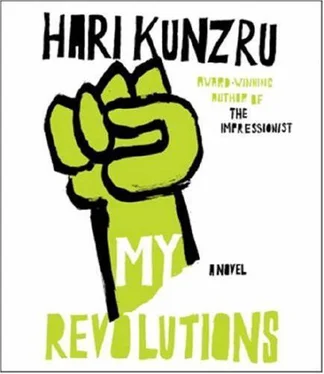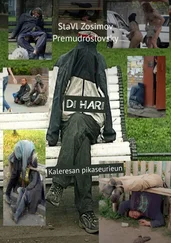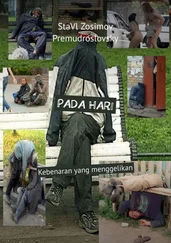“Hold on there, cowboy. I saw you drive up. I came to find you.”
“Get off. Get the fuck away from me.”
“Calm down, amigo . Bad journey?”
“It was OK.”
“We’re over in the dunes, shooting targets.”
I’d followed Anna’s instructions. A Middle Eastern man in a café on Edgware Road. An envelope of money. I’d bought the van, taken it to be modified. Now there were secret compartments behind the door panels and between the front and rear axles, ready to transport the equipment back to the U.K. We’d all made our way to the marshes in ones and twos, disguised as tourists exploring the national park. As money was no longer a problem I’d bought myself new camping equipment, an expensive tent and sleeping bag. I told Sean I’d follow on and pitched it some distance away from the boathouse. I wanted to wake up in the morning and see the horizon. I wanted to watch the flight of the birds.
For that week we knew each other only by single names. The instructors were Khaled and Johnny. There were the Germans, Jochen, Conny, Frank, and Julia. Paul, I think, was French. Some had been in southern Lebanon, training in a PFLP camp. For others, like me, this was the first contact with what Khaled called “the organization.” I watched Anna skillfully stripping and rebuilding a 7.65 mm Skorpion machine pistol. She demonstrated how to reduce the rate of fire, how the stock folded so it could be carried under a jacket or a coat. Khaled stood beside her, nodding approvingly, his eyes fading from view behind his Polaroid sunglasses whenever the sun emerged from behind a cloud.
A gun, an animal weight in my hands, warm and snakily alive. Anna repeating Arabic words from a phrasebook. Johnny picking
his way over the dunes, the sand filling his city shoes. No one disturbed us. No one came. In the evenings, after the light had failed and we’d eaten a tasteless meal of canned soup and bread, discussions were held in the dank boathouse. Ideas were debated in a patchwork of languages. Plans were formed. People spoke of a strategy for victory. They spoke about the end of Imperialism. They could have been talking about anything. Road resurfacing, waste disposal. Out in the marshes, I thought. We’re out in the marshes at the edge of the sea, miles from the nearest other human beings, talking about who we’re going to kill to demonstrate our organic connection to the masses. I’d light my way back to my tent with a little pocket flashlight, a bright speck in the enormous darkness.
Johnny and Khaled never let us forget where the money came from, whose agenda took priority. Whatever we’d been doing before, whichever acronymic jumble of letters represented our particular hopes, we were now part of something much larger than ourselves, an international network with nodes in Frankfurt, Milan, Beirut, Bilbao. They talked about targets in London, people and places that had no connection with anything I cared about. They talked obsessively about Zionism. The weapons were new, some of them still in their packing grease. They were all of Eastern-bloc manufacture: Makarovs and Tokarevs, the Czech Skorpion machine pistols. This should have told us all we needed to know. We weren’t autonomous anymore. Far from it. Yet none of the others, these people I knew as Sean and Leo and Anna and Jay and Claire but who now had other names, seemed to want to be reminded of the way we’d talked to one another only a few months previously, how we’d intended to escape the binary madness of East and West, how we respected human life. Armed love, we’d said. In order to get rid of the gun it is necessary to take up the gun. I fired off rounds into a paper target, and with each bullet I believed a little less. Quietly, privately, I began to wonder how I could get away.
Oh, Sam. It was arrogance, I suppose. We thought we’d stepped
outside. We thought it had been given to us to kick-start the new world. Can you understand that? Does wanting to be a corporate lawyer count as a dream? For the first time in many years I celebrated my birthday, Chris Carver’s birthday, a few weeks before that of Michael Frame. I sat in the study with an expensive bottle of Burgundy and looked back at my fifty years and felt so fucking disappointed, Sam. I knew I needed to speak to you, to prepare you, however imperfectly, for what was about to happen. That was just last week, when I drove to Bristol to see you. You were shocked to find me on your doorstep. You opened the door a crack, your hair a mess, a sheet wrapped round your middle. It was past twelve. I could hear someone coughing in the background. You left the boy in your bed and made me coffee in the shared kitchen, shuffling past your neighbors as they boiled pasta and opened cans to make a sauce.
“What are you doing here, Dad?” As if I were a visitor from outer space, bug-eyed and slightly disgusting, come to earth to rupture your reality. I told you I needed to talk and you said you had a lecture. Couldn’t I have rung first? I offered to occupy myself for an hour or two, meet you afterward. I wandered round Clifton and, when you’d gotten yourself together, took you to lunch at a fancy French restaurant where I encouraged you to overorder and flourished the wine list and generally faked my way through the part of the jovial father who’d come down to uni to give his daughter a surprise. I tried to get you to eat. You just pushed your food around on your plate. You looked thin and I said so, and immediately you flew off the handle, telling me to mind my own business. That sort of remark was typical of me. It was typical of men. I asked what you meant and you raised your voice and demanded to know why it was that, unless you were totally stuffing yourself, men were always, like, were you some kind of anorexic. You used the word fucking . Miranda never liked you to swear. What, you asked, was I doing in Bristol anyway?
I told you there was something you needed to know about, and you immediately asked whether your mum and I were splitting up.
Such a direct question, it threw me. “Of course not,” I said automatically. “No, of course not.” You sat there, your face suspicious and expectant by turns. I was lost for words. I’d already gone wrong. You were so volatile, so unexpectedly bitter. In a bid to mark time, I heard myself say, yet again, that there was something I needed to discuss. I tried to push myself on by telling you there were things you and your mum didn’t know about me.
You reacted with hair-trigger hostility. “I knew it. You’re sleeping around on Mum. You bastard.”
As much as I protested, you wouldn’t listen. You were so absolute, so unwilling to be contradicted. You called me various names echoing things Miranda must have complained to you about. Why didn’t I do something with my life? Why did I just mooch off other people?
You were impossible, Sam. You wouldn’t let me get a word in. You’d sensed something and you knew you were at least half right, which gave you the confidence, the self-righteousness, to shut me down completely. Angry and hurt, I called for the bill. We didn’t part as friends.
Miranda must have forced you to come home for the party. You didn’t have much to say to me when you arrived that evening, just dropped your stuff and went out to the pub. Surely you must have told your mum I’d been to see you. She didn’t bring it up. I decided she must be holding it in reserve. That was what I was thinking about when Miles arrived. Was it yesterday? The day before. I was in the study, watching the men from the marquee company fooling about on the lawn. I swiveled round on my chair and there he was, standing in the doorway.
“Hello, Chris. Sorry to call so unexpectedly. Door was open.”
My instinct, as ever, was to get him out of the house, so we walked into town and sat in a café, some hideous chain operation with prosthetic-pink iced buns lying like hospital patients under the glass of the counter and a bedraggled Eastern European girl making coffee that tasted of dishwashing liquid. “Will that be everything for you today?” she said mechanically, as we lined up
Читать дальше












